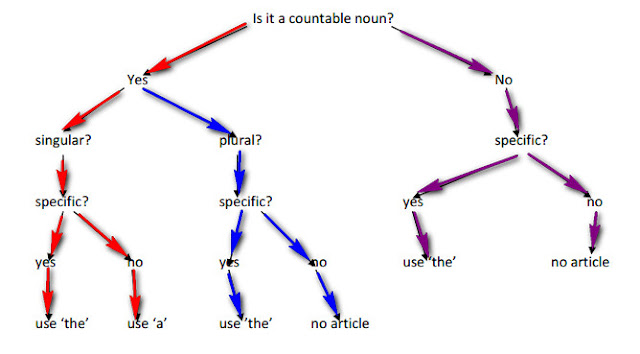The conditional type three 3
The conditional type three 3
Definitions:
*The type 3 conditional refers to an impossible condition in the past and its probable result in the past. These sentences are truly hypothetical and unreal because it is now too late for the condition or its result to exist. There is always some implication of regret with type 3 conditional sentences. The reality is the opposite of, or contrary to, what the sentence expresses. In type 3 conditional sentences, the time is the past and the situation is hypothetical.
Examples:
If had owned a car, I would have driven to work. But I didn't own one, so I took the bus.
She would have traveled around the world if she had had more money. But she didn't have much money, so she never traveled.
Form
We make the third conditional with:
If+subject+Past perfect, subject+would/wouldn't+have+past participle.
Negative form
If we had not crashed our car; we wouldn't have been late.
Question Form
We make questions in the third conditional with:
(Question word)+ would+subject+have+past participle...+if+subject+past perfect
A: What would you have done if you had won the lottery last week?
B: I would have bought a house.
B: I would have bought a house.
*In type 3 conditional sentences, you can also use modals in the main clause instead of "would" to express the degree of certainty, permission, or a recommendation about the outcome.
we can also use could and might in the main clause to mean 'would perhaps':
If the men hadn't run away, she could have killed them.
If it had been me; I might have left a note on the car.
If the men hadn't run away, she could have killed them.
If it had been me; I might have left a note on the car.
*The if clause can be first or second in the sentence.


